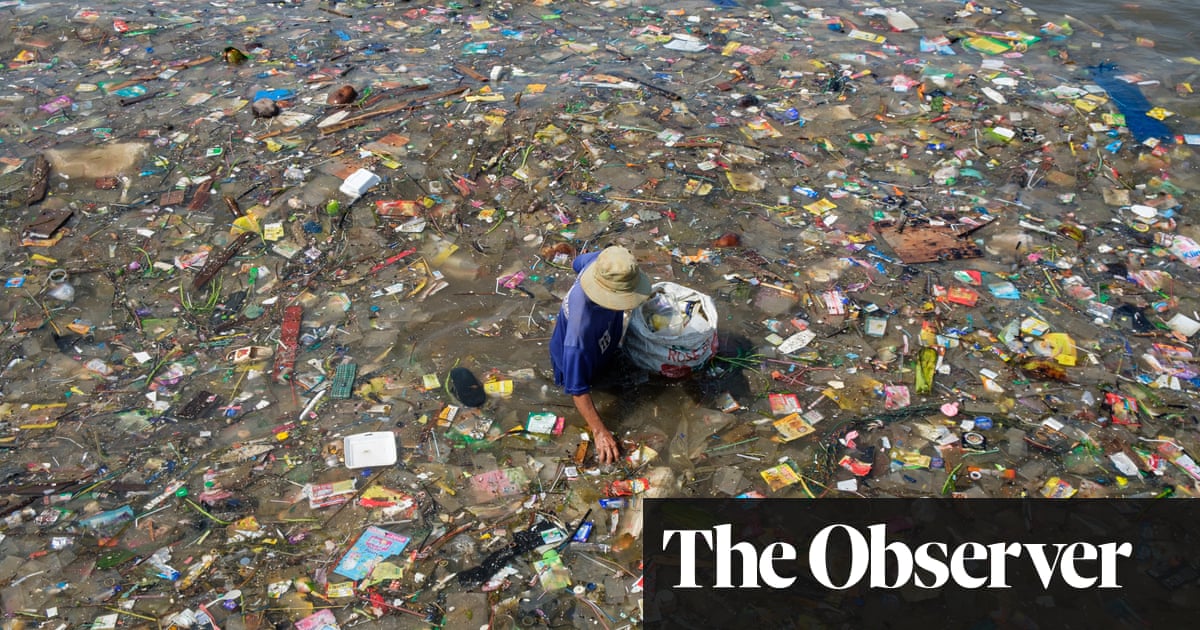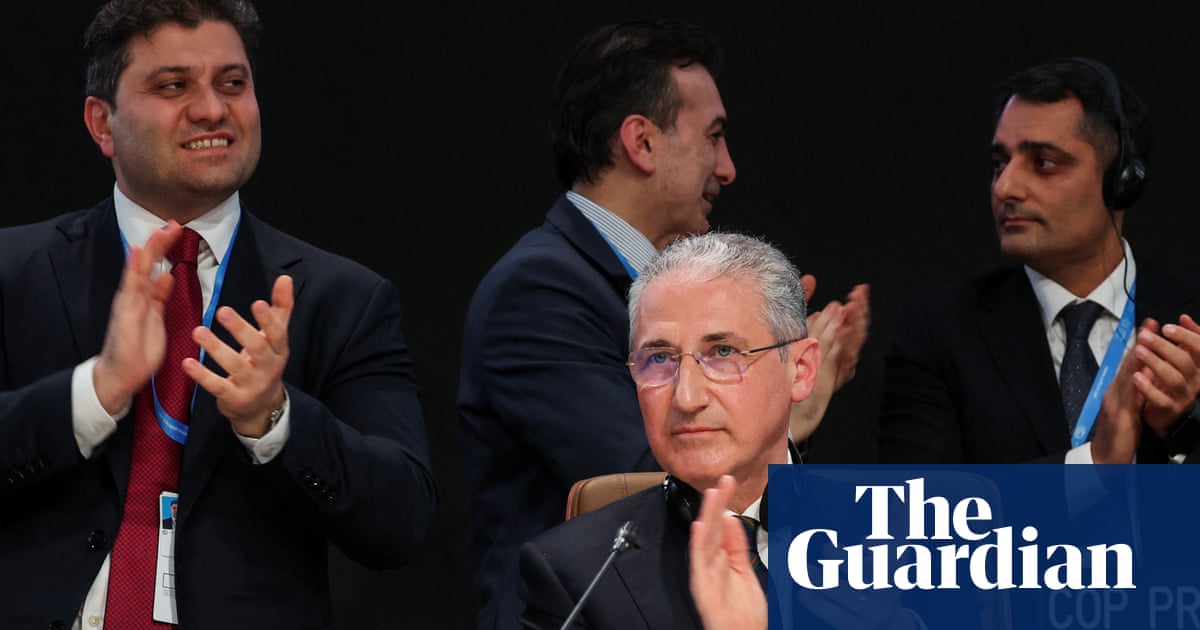The climate finance deal agreed at Cop29 is a âtravesty of justiceâ that should not have been adopted, some countriesâ negotiators have said.
The climate conference came to a dramatic close early on Sunday morning when negotiators struck an agreement to triple the flow of climate finance to poorer countries.
Developing nations had called on rich countries to provide them with $1.3tn (£1.08tn) a year to help them decarbonise their economies and cope with the effects of the climate crisis. But the final deal sets a pledge of just $300bn annually, with $1.3tn only a target.
The number is an increase from a previous $100bn promise, but Chandni Raina, a negotiator for India, said it was âabysmally poorâ compared with what was needed.
âThis, in our opinion, will not address the enormity of the challenge we all face,â she said on the negotiation floor moments after the deal was gavelled through.
For Raina, who is an adviser to Indiaâs department of economic affairs, it was not only the goal itself that caused anger but also the process by which it was finalised.
Hours before the conclusion of Cop29, when a deal seemed elusive, delegates from the US, Colombia and several African nations were seen poring over documents in a huddle. Drafts were circulated before they were shared with the public, and throughout the conference centre rumours circulated about last-minute backroom deals being made.
Raina said the UNâs framework convention on climate change, which convenes the annual Cop summits, was meant to make decisions by consensus. India had been planning to make a dissenting statement before the decision was adopted but was not given the opportunity to do so, she said.
Rain said the $300bn pledge was âstage-managedâ. âThis document is little more than an optical illusion,â she said.
In an interview with the Guardian shortly after her statement, Raina called the goalâs adoption âoutrageousâ. âThis was completely a travesty of justice,â she said.
The Cop29 presidency did not adopt another key negotiating item, known as the UAE dialogue, Raina said. The document â a follow-on from a commitment to âtransitioning away from fossil fuelsâ made last year at Cop28 â was rejected when countries said it was too weak.
Raina said the climate finance item should have been treated the same way. âItâs unclear what the legalities here are,â she said.
Catherine Pettengell, an advocate with the NGO Climate Action Network UK, said the procedural choices could erode trust in UN climate processes.
âDeveloping countries have been forced to accept half-measures, Cop after Cop, but at Cop29 these half-measures push the costs of climate change on to the people least responsible but suffering the worst consequences,â she said.
The goal left a bitter taste in other negotiatorsâ mouths. âThat the developed countries are saying that they are taking the lead with $300bn by 2035 is a joke,â a delegate from Nigeria said after the documentâs adoption. âWe do not accept this.â
She said developing countries such as Nigeria, which is a major oil producer, would need far more assistance to cut their emissions.
Juan Carlos Monterrey Gómez, Panamaâs special representative for climate change, also questioned the process of the goalâs adoption.
after newsletter promotion
âThe gavel was hit way too fast and our heart goes out to all those nations that feel like they were walked over,â he said. âDeveloped nations always throw text at us at the last minute, shove it down our throat, and then, for the sake of multilateralism, we always have to accept it, otherwise the climate mechanisms will go into a horrible downward spiral, and no one needs that.â
Hours before the text was adopted, delegations from small island states and the least developed nations walked out of one meeting, saying their climate finance interests were being ignored.
The least developed countries (LDC) negotiating bloc, which represents 45 nations and 1.1 billion people, said Sundayâs deal destroyed three years of negotiations on the climate finance goal.
âThis has been casually dismissed,â an LDC statement said. âDespite exhaustive efforts to collaborate with key players, our pleas were met with indifference. This outright dismissal erodes the fragile trust that underpins these negotiations and mocks the spirit of global solidarity.â
Sundayâs deal does not allocate specific sums to âparticularly vulnerableâ LDCs or low-lying islands. But the groups did win a mention in the text.
Avinash Persaud, an expert on climate finance at the Inter-American Development Bank, who has served as an adviser to Barbados prime minister, Mia Mottley, said: âIt was hard fought over, but at $300bn per year led by developed to developing countries, we have arrived at the boundary between what is politically achievable today in developed countries and what would make a difference in developing countries.
Raina said the text did not include adequate protections for other developing nations. âAll developing countries need finance,â she said, adding that Indiaâs per-capita emissions were far lower than those of developed nations.
Prof Ottmar Edenhofer, a climate economist at the Potsdam Institute for Climate Impact Research in Germany, said the most important part of the Cop29 finance deal was that it existed at all. The multilateral system of international cooperation had not collapsed as had seemed possible at times, he said.
âThe climate summit in Baku was not a success but at best the avoidance of a diplomatic disaster,â he said. But different ways to tackle the climate crisis were now needed, he added, such as cooperation between smaller groups of nations.
Others took a less rosy view. Tracy Carty, of Greenpeace International, said fossil fuel companies â which have made $1tn a year in profit annually for half a century â should have been forced to pay into the finance pool.
Nafkote Dabi, the climate policy lead at Oxfam International, called the agreement a âglobal Ponzi schemeâ. âThe destruction of our planet is avoidable, but not with this shabby and dishonourable deal,â she said.









